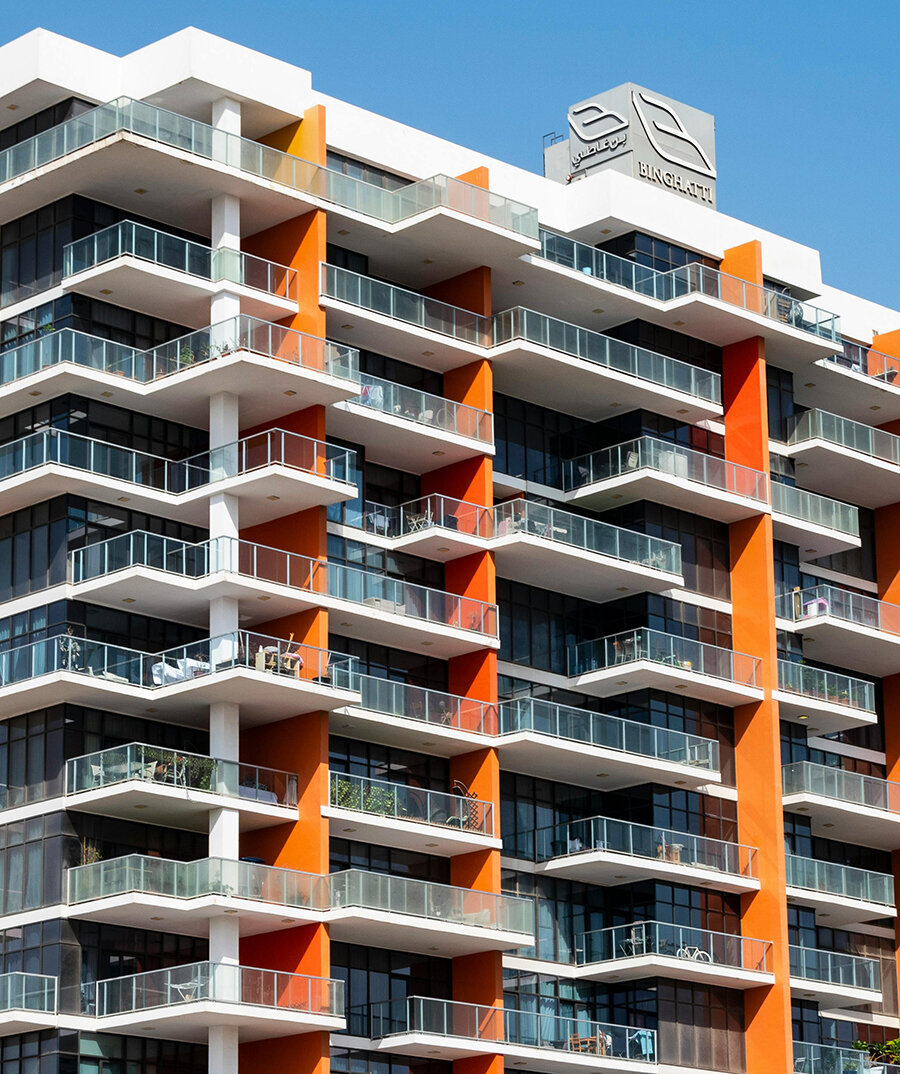Property Buyers in Dubai to Pay More as Banks Stop Covering Fees

As of February 1, 2025, banks in Dubai have stopped financing the 4% Dubai Land Department (DLD) fees and the 2% brokerage commissions, meaning buyers must now cover these costs themselves, according to Khaleej Times.
Additionally, property prices in some areas are expected to rise following new freehold ownership rights granted in specific districts.
Additional Fees Now Covered by Buyers
Industry leaders note that banks previously included these fees in mortgage loans. According to Rohit Bachani, co-founder of Merlin Real Estate, the change aligns Dubai’s property market with international standards, as in developed markets like the UK and the US, banks typically do not finance such fees.
This shift may initially impact the market as buyers will need to pay these costs upfront, increasing the initial financial burden. For example, on a 1 million AED ($272,000) property transaction, buyers will now need to pay an additional 60,000 AED ($16,336) upfront. However, Bachani believes that the market will adjust, and this will not have a long-term effect on mortgage lending.
According to Farooq Syed, CEO of Springfield Properties, the change makes off-plan (primary market) properties more attractive since buyers will require fewer funds upfront. Developers often offer long-term payment plans, making off-plan properties cheaper initially compared to secondary market purchases, especially for mortgage buyers.
Moreover, this policy is expected to lead to a slight price correction, which experts view as a positive move to stabilize the market and prevent overheating.
New Freehold Ownership Rights in Key Locations
Dubai Land Department (DLD) has announced that all private property owners between the Trade Center Roundabout and the Water Canal on Sheikh Zayed Road, as well as in Al Jaddaf, can now convert their ownership status into full freehold rights.
According to estimates, 457 plots are affected, including 128 on Sheikh Zayed Road and 329 in Al Jaddaf. The conversion fee is set at 30% of the property’s value, after which owners will receive a title deed and ownership certificate.
Farooq Syed predicts that property values in these two districts could rise by 50%. Ayman Youssef, managing director of Coldwell Banker, argues that full freehold rights give property owners, especially those managing large-scale developments, better exit strategies.
“Historically, selling such buildings was a complex process, but with land ownership rights, it becomes significantly easier,” Youssef explained. “This policy is expected to generate around 500 million AED ($136 million) in revenue for Dubai.”
He also noted that residential property owners stand to benefit the most, as land ownership rights enable them to access mortgage financing, increasing financial flexibility. This move is also expected to boost the value of buildings, making them more attractive to both investors and buyers.
Sheikh Zayed Road remains one of Dubai’s most strategically located and well-developed areas, offering proximity to malls, restaurants, tourist attractions, and medical facilities.
Al Jaddaf, on the other hand, is an emerging commercial hub, and these changes are expected to stimulate further development and attract businesses seeking to establish a presence in Dubai.
According to Rohit Bachani, this policy could unlock significant capital for investors across the Gulf region, opening new opportunities for acquiring property under full ownership. While commercial property owners on Sheikh Zayed Road stand to gain the most, residential landlords may see stable rental yields, and demand for high-end Grade A buildings could drive rental price increases.
Golden Visa Updates & New Rental Index
Dubai has recently updated its Golden Visa program for property investors.
New rules allow investment in off-plan properties, provided buyers pay at least 50% upfront or offer a bank guarantee for the remaining amount.
However, to qualify for a Golden Visa through completed properties, full payment is now required—mortgage financing is no longer an option.
Additionally, in January 2025, the Dubai Land Department (DLD) launched an updated Smart Rental Index, designed to help investors and tenants assess fair rental prices.
The index covers all residential areas in Dubai, including special development and free zones.
A new star rating system evaluates old and new buildings, incorporating factors like amenities, maintenance, and property management.
Higher-rated buildings may see rents increase by up to 20%, while older buildings that undergo renovations may also see rental adjustments.
Market Outlook for 2025
Bloomberg analysts question the long-term sustainability of Dubai’s real estate market, predicting a slowdown in price growth. Experts recommend caution in new investments, a sentiment echoed by Emaar’s CEO Mohamed Alabbar, who warned that excessive price increases could negatively impact the market.
Dubai must continue to attract new residents to sustain its housing demand. Additionally, ensuring affordable housing is critical to retaining expatriates, as global inflation and rising living costs put pressure on affordability.
According to Knight Frank, nearly 20% of Dubai’s homes are now valued at over $1 million. Property prices are expected to rise by 8% in 2025, compared to the 20% surge in 2023. Meanwhile, luxury property prices are forecasted to increase by 5%, outpacing London (+2%) and New York (+3%).
However, concerns about market sustainability persist, as much of Dubai’s new supply is sold on pre-construction payment plans, which pose risks if buyers default on payments. The strengthening of the US dollar, to which the UAE dirham is pegged, is also making Dubai’s property market more expensive for international investors.
Supply & Demand: Developers Face New Challenges
Brokers report a slowdown in sales, especially for new projects. According to REIDIN, Dubai developers launched a record 140,000 residential units across 588 projects in 2024.
A steady supply of new homes could help control price growth, but the main challenge for developers is ensuring successful project completions. For many real estate companies, the key focus in 2025 will be delivering promised developments rather than launching new ones.








